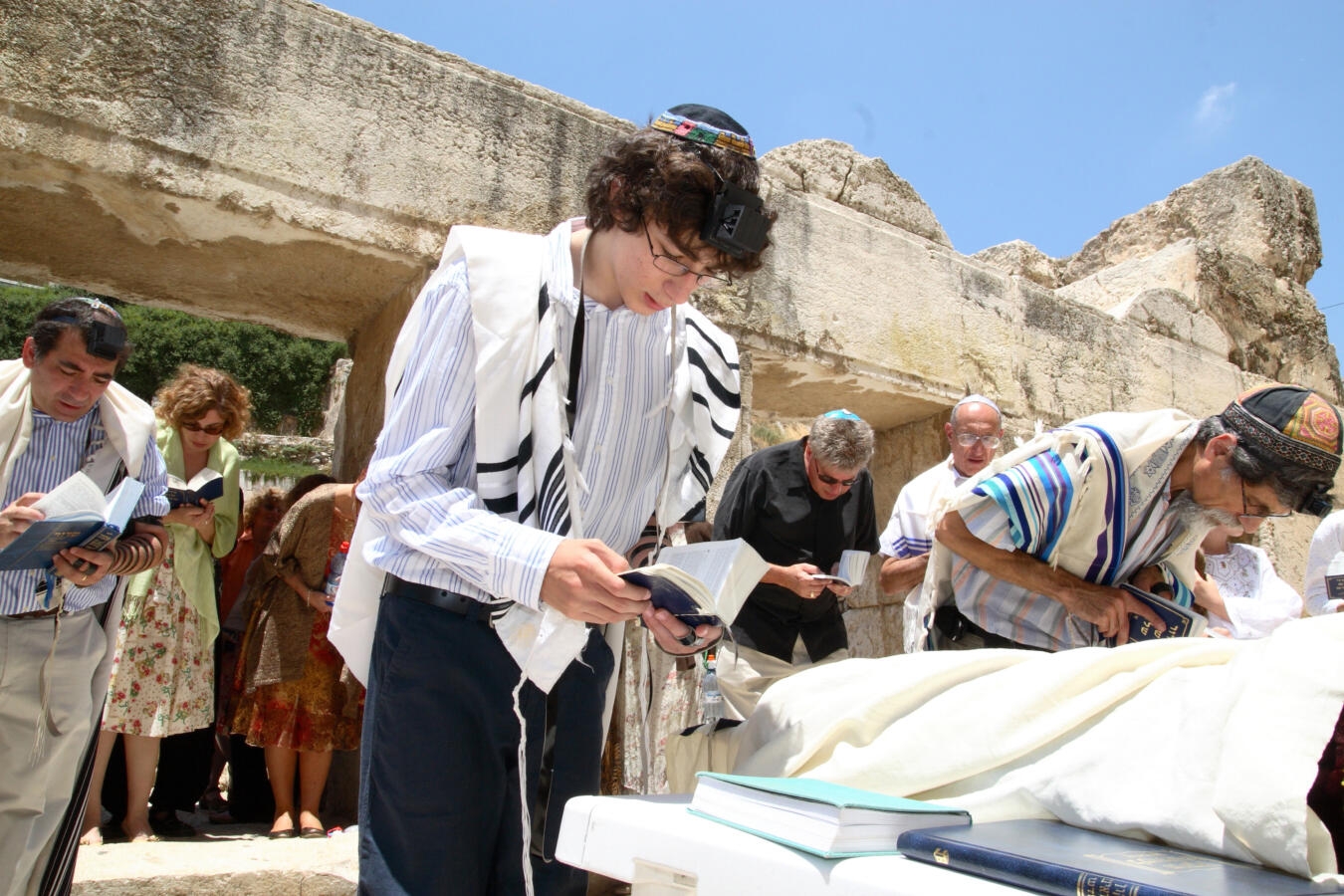A bar/bat mitzvah can be a wonderful way to share Jewish traditions with non-Jewish extended family members and friends. However, it can also spur hurt feelings when family members — or even one of the bar/bat mitzvah child’s parents — feel unwelcome or excluded. To ensure that your child’s bar/bat mitzvah is a happy occasion, here are suggestions for things to do beforehand.
Talk with your rabbi early to know what the opportunities might be. Each synagogue is different. There is only one way to know what a congregation and a rabbi will permit family members to do: ask. Most non-Jewish parents are relieved just to know what they and their “side” of the family can do in a religious service. Rabbis and congregations owe it to their interfaith-married families to share openly the policy for non-Jewish participation in bar/bat mitzvah celebrations.
Some practical questions to ask include:
· Can both parents be on the bimah (pulpit) as the child is called to the Torah?
With your help, My Jewish Learning can provide endless opportunities for learning, connection and discovery.
· Can non-Jewish relatives participate in any of the honors given out Friday night or Saturday morning, e.g., opening the ark, dressing the Torah, reciting specific prayers or blessings like the Prayer for the Country?
· If the Torah is passed down through the generations, can non-Jewish parents and grandparents share in that passing?
Remember: Synagogues are in the business of helping Jewish families live Jewish lives. Each community has its limits and privileges. Just as a non-Christian would not take communion, so too, synagogues have frameworks within which non-Jewish family members can participate.

Teach non-Jewish family members about the upcoming ceremony of bar/bat mitzvah. Take the time to let non-Jewish relatives understand why your child is preparing so hard for his/her special Shabbat (Sabbath). Help them learn what Torah means, how Jews understand bar/bat mitzvah.
Among the books available, I recommend two in particular: Bar/Bat Mitzvah Basics: A Practical Family Guide to Coming of Age Together and Putting God on the Guest List: How to Reclaim the Spiritual Meaning of Your Child’s Bar or Bat Mitzvah.
Show non-Jewish family members what being Jewish means to your family and to your community. Invite them to join you when you celebrate a holiday or Shabbat in your home. Allow them to experience another child becoming a bar/bat mitzvah, so they will be more comfortable when their relative stands on the bimah.
Such preparation can begin a few months before the ceremony or even before a baby is born. But there is another type of preparation. The challenge of an interfaith family raising Jewish children is balancing each parent’s own religious tradition and the Jewish tradition in which the child is raised. Emotional and religious dynamics come to the forefront during this time. Questions parents should ask of themselves include:
· As the non-Jewish parent, what has been my commitment to my child’s Jewish life? Have I helped to instill Jewish values and traditions? Will my participation in the ceremony be a natural extension of who I have been all along?
· As the Jewish parent, will my spouse be comfortable participating in rituals that she or he may not believe in, or may not feel apply to her or him?
· Has our extended family been supportive and nurturing of our decision to raise our child as a Jew? Will they be comfortable participating in a Jewish service when they themselves do not choose to be Jewish?
If the answer is “no” to any of these questions, this can be a wonderful teaching moment, where parents help their child understand that values and actions go hand in hand. Clearly, most children desire their parents and family all to celebrate. They want to be “like everyone else.” This is an opportunity for parents to teach about the statement one makes when leading Jewish worship (by accepting an honor during services). And the statement is, “I support my child’s Jewish choices, my child’s Jewish identity.”
The parent (or family) who has been uninvolved Jewishly can still celebrate authentically and participate fully in the “secular” aspects of the celebration (party, etc.) and in those aspects of the service that involve “presence” but not “participation.” In this manner, the child is honored by both parents (and family), and the child understands the privilege of “being Jewish and behaving Jewishly.”
Honest answers will help each family know what level of participation is appropriate for this “coming-of-Jewish-age” ceremony for the child.
Reprinted with permission from InterfaithFamily.com.
mitzvah
Pronounced: MITZ-vuh or meetz-VAH, Origin: Hebrew, commandment, also used to mean good deed.
Shabbat
Pronounced: shuh-BAHT or shah-BAHT, Origin: Hebrew, the Sabbath, from sundown Friday to sundown Saturday.
Torah
Pronunced: TORE-uh, Origin: Hebrew, the Five Books of Moses.



